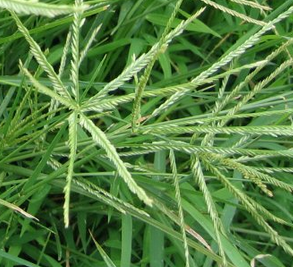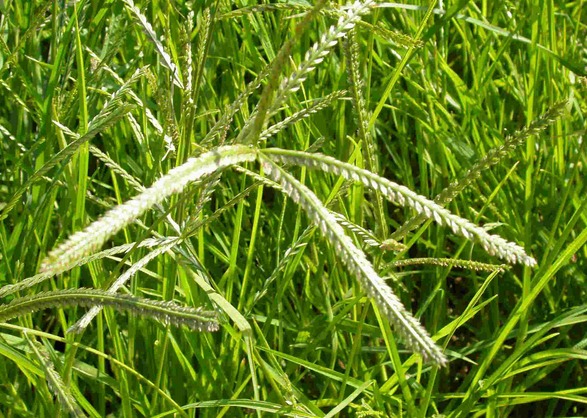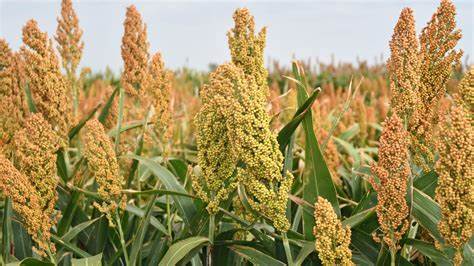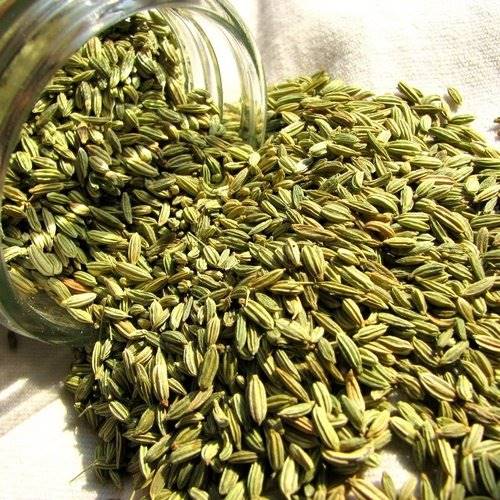Paragis Grass (Eleusine indica) Health Benefits and Uses

Paragis, also known as Goosegrass or Dog’s Tail, is a type of grass that is commonly found in areas with hot climates. It has been used for centuries in the Philippines as an alternative medicine and is highly regarded by herbalists for its many health benefits,
According to an article on PhilNews.PH, Paragis is known for being an antihistamine and is effective against diabetes and kidney stones. It is also said to have anti-inflammatory, antibacterial, anticonvulsant, antileishmanial, antioxidant, antiplasmodial, cytotoxic, pancreatic lipase inhibitory and phytoremediation properties.
The leaves of Paragis can be boiled to make tea consumed raw as a salad green or boiled as a vegetable. It can also be juiced as a beverage or dried and powdered for use as a supplement
The Health Benefits of Paragis Grass (Eleusine indica)
Paragis grass, also known as goosegrass or wiregrass, offers a variety of health benefits. Here are some of the notable ones:
- Blood Sugar Regulation: Paragis grass can help regulate blood glucose levels, making it beneficial for managing diabetes.
- Diuretic Properties: It acts as a natural diuretic, helping to flush out toxins and excess salt from the body.
- Antioxidant Activity: The grass contains antioxidants that can protect against oxidative stress and reduce inflammation.
- Wound Healing: Crushed leaves can be applied to wounds to prevent bleeding and promote healing.
- Parasite Elimination: Paragis tea is used as a dewormer to remove parasites from the body.
- Immune System Boost: Regular consumption can help boost the immune system.
- Hypertension Management: Hypertension can help manage high blood pressure.
- Kidney and Gallstone Problems: Its diuretic properties also aid in treating kidney and gallstone issues.
- Anti-inflammatory and Antibacterial: It has properties that can help reduce inflammation and fight bacterial infections.
Chemical Properties of Paragis Grass (Eleusine indica)
- Silicon Monoxide: Found in the leaves, this compound is known for its potential health benefits, including supporting bone health and skin elasticity.
- Calcium Oxide: This compound is essential for bone health and various metabolic functions.
- Chlorine Compounds: These are involved in maintaining proper hydration and electrolyte balance in the body.
- Protein: Dried leaves of Paragis grass contain protein, which is crucial for muscle repair and overall body function.
Additionally, Paragis grass exhibits various properties such as being an antihistamine, antioxidant, anti-inflammatory, antidiabetic, cytotoxic, and natural diuretic
How to use Paragis Grass (Eleusine indica)

Paragis is a type of grass that is known for its medicinal properties. It is used to treat various ailments such as myoma, ovarian cyst, cancer, kidney problems, arthritis, diabetes, muscle sprain, deworming, injuries, UTI or urinary tract infection, hair fall, asthma, dysentery, hemoptysis, bladder problems, liver disorder, jaundice, malaria and women infertility.
Using Paragis grass extract as an herbal medicine can be quite beneficial. Here are some common methods:
1. Paragis Tea
Ingredients:
- Fresh or dried Paragis grass leaves
- Water
Instructions:
- Boil a pot of water.
- Add a handful of fresh or dried Paragis grass leaves to the boiling water.
- Let it simmer for about 10-15 minutes.
- Strain the leaves and drink the tea.
Benefits: This tea can help with diuretic purposes, blood sugar regulation, and boosting the immune system.
2. Paragis Poultice
Ingredients:
- Fresh Paragis grass leaves
Instructions:
- Crush fresh Paragis grass leaves to extract the juice.
- Apply the crushed leaves or the juice directly to wounds or inflamed areas.
Benefits: This can help in wound healing and reducing inflammation.
3. Paragis Decoction
Ingredients:
- Fresh or dried Paragis grass leaves
- Water
Instructions:
- Boil a pot of water.
- Add a handful of fresh or dried Paragis grass leaves.
- Let it boil for about 20-30 minutes until the water reduces to half.
- Strain the leaves and let the decoction cool.
- Drink the decoction.
Benefits: This method is effective for managing hypertension, kidney, and gallstone problems.
4. Paragis Juice
Ingredients:
- Fresh Paragis grass leaves
- Water
Instructions:
- Blend fresh Paragis grass leaves with a small amount of water.
- Strain the mixture to extract the juice.
- Drink the juice.
Benefits: This juice can help with detoxification and boost the immune system
Side Effect of Paragis Grass
While Paragis grass is generally considered safe for most people, it’s important to be aware of potential side effects and safety considerations:
Safety Considerations
- Consultation: Always consult with a healthcare provider before starting any new herbal treatment, especially if you have underlying health conditions, are pregnant, or are breastfeeding.
- Dosage: Stick to recommended dosages. Overconsumption can lead to adverse effects.
- Allergies: Monitor for any allergic reactions. If you experience itching, swelling, or difficulty breathing, discontinue use and seek medical attention.
Potential Side Effects
- Diuretic Effect: Due to its diuretic properties, excessive use can lead to dehydration and electrolyte imbalances.
- Blood Pressure: It may lower blood pressure, so individuals with low blood pressure should use it cautiously.
- Blood Sugar Levels: It can affect blood sugar levels, which is beneficial for diabetics but may cause hypoglycemia if not monitored properly.
- Digestive Issues: Some people may experience mild digestive issues such as nausea or stomach upset.
General Advice
- Start Small: Begin with small doses to see how your body reacts.
- Stay Hydrated: Ensure you drink plenty of water, especially if using it for its diuretic effects.
- Monitor Health: Keep track of any changes in your health and report them to your healthcare provider.
Also, check the video below for more information









Review Paragis grass (Eleusine indica).
You must be logged in to post a review.